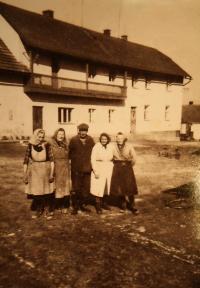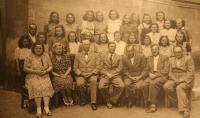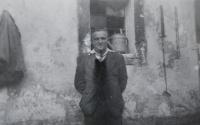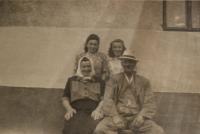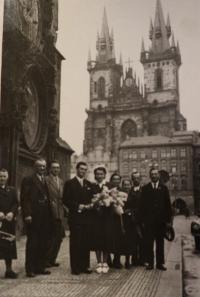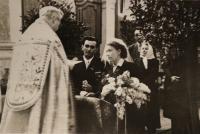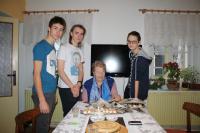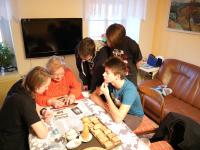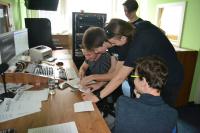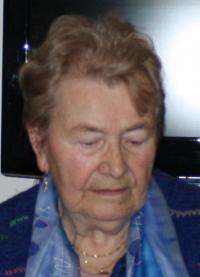A delegation was coming to the field to persuade us to sign the join the state agricultural cooperative
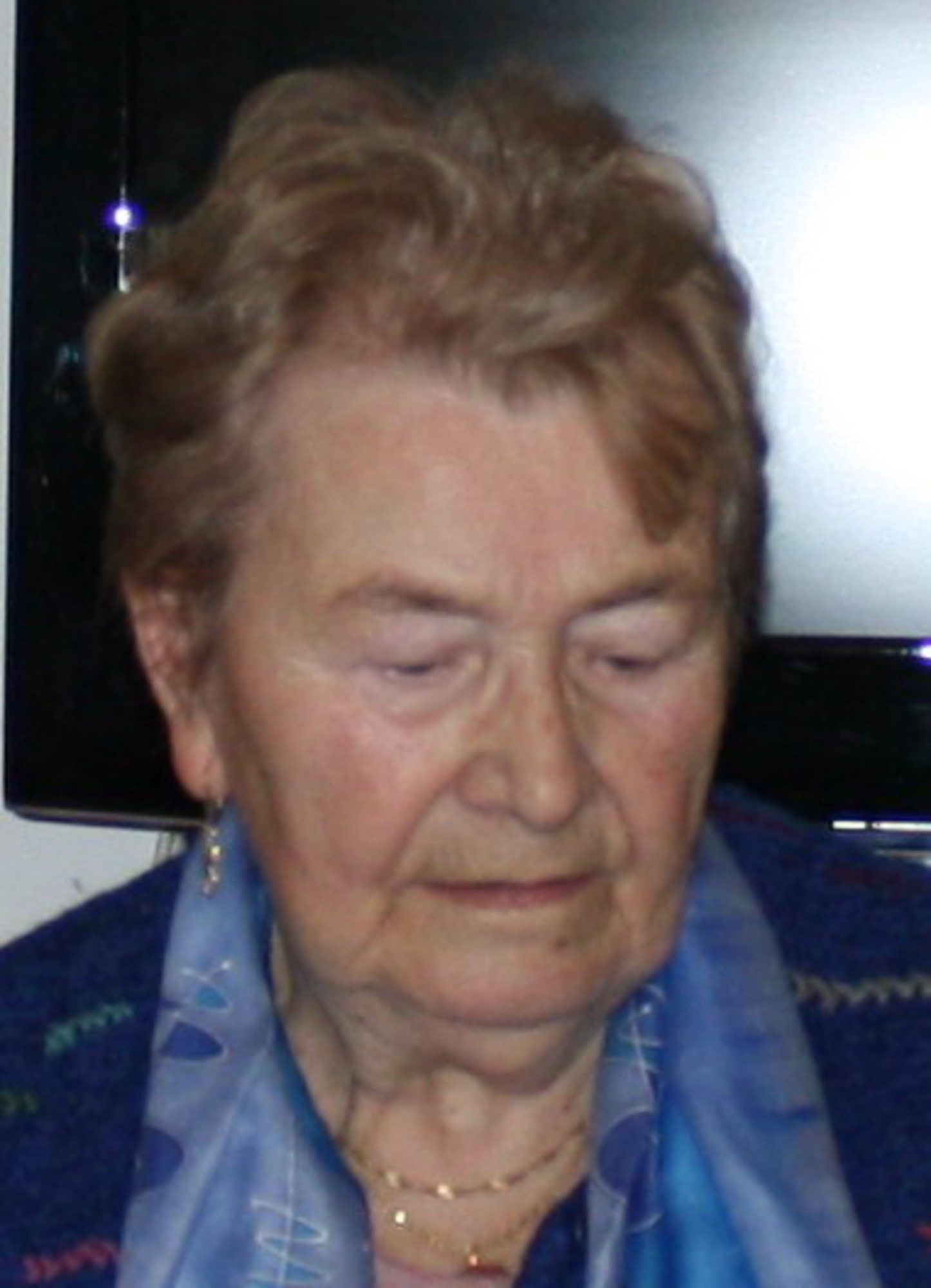
Download image
Růžena Šorejsová was born on 29 June, 1933 in Hoškovice into an agricultural family. During WW2 they were making butter secretly, and had to give away obligatory food ratios, but otherwise they managed quite all right. After war they got assigned a German boy to help out at the farm and had nice mutual relations. In 1953 she got married and kept helping out her parents, until they had to give away their acres of land to the state agricultural cooperative. In 1959 - 1975 she worked at the state farm and next seventeen years as a shop assistant in the household goods shop in Mnichovo Hradiště. She has three daughters and despite her age she still attempts to keep active all the time.
